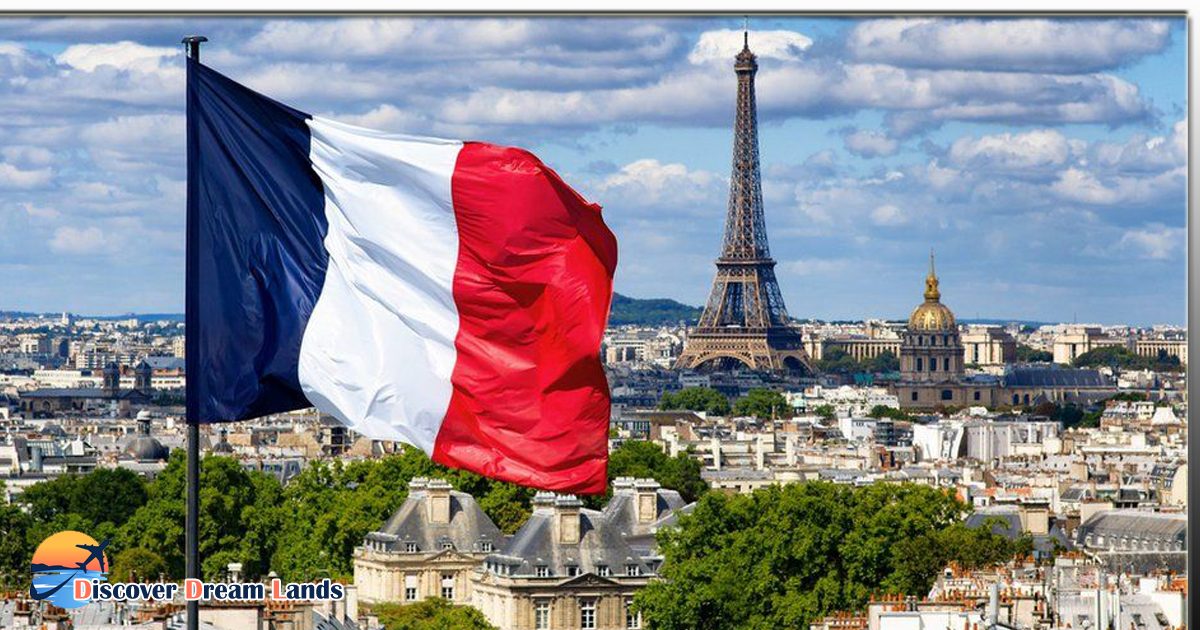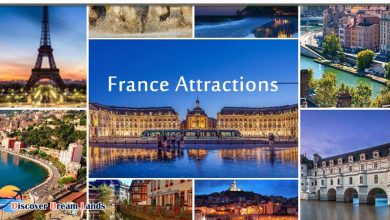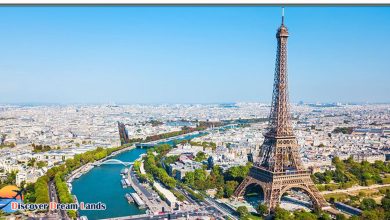Beyond the Eiffel Tower: Intriguing Facts About France
Beyond the Eiffel Tower: Intriguing Facts About France

Contents
- 1 Beyond the Eiffel Tower: Intriguing Facts About France
- 2 France’s Festivals
- 3 Things to Do in France
- 4 France’s Food
- 4.1 Baguette
- 4.2 Croissant
- 4.3 Coq au Vin
- 4.4 France Hestory
- 4.4.1 Ancient Gaul and Roman Conquest
- 4.4.2 The Frankish Kingdom and the Rise of the Merovingians
- 4.4.3 The Carolingian Empire and Charlemagne
- 4.4.4 The Capetian Dynasty and the Birth of Modern France
- 4.4.5 The Hundred Years’ War
- 4.4.6 The Renaissance and Religious Wars
- 4.4.7 The Bourbon Dynasty and Absolute Monarchy
- 4.4.8 The French Revolution
- 4.4.9 Napoleonic Era
- 4.4.10 The 19th Century and Industrialization
- 4.4.11 World Wars and Modern Era
- 4.4.12 The Fifth Republic
- 4.4.13 Contemporary France
- 4.5 Conclusion
- 4.6 Facts About France
Beyond the Eiffel Tower: Intriguing Facts About France
France is a country with a rich cultural heritage, vibrant festivals, a wide array of activities, and exquisite cuisine. This article explores France’s Festivals, things to do in France, and France’s Food, offering a comprehensive overview of these fascinating aspects.
France’s Festivals
Bastille Day
Bastille Day, celebrated on July 14th, is France’s national holiday. It commemorates the French Revolution and the storming of the Bastille prison. The day is marked by grand military parades on the Champs-Élysées, fireworks, parties, and public dances. It’s one of the most significant events in France’s festivals calendar.
Cannes Film Festival
The Cannes Film Festival is one of the most prestigious film festivals in the world. Held annually in May, it attracts celebrities, filmmakers, and film enthusiasts from around the globe. The festival features screenings, red carpet events, and awards ceremonies, making it a highlight among France’s festivals.
Nice Carnival
The Nice Carnival is one of the oldest and largest carnivals in the world. Held in February, it includes parades with elaborate floats, costumed performers, and vibrant flower battles. The carnival brings the streets of Nice to life, showcasing the festive spirit that characterizes France’s festivals.
Things to Do in France
Visit the Eiffel Tower
Visiting the Eiffel Tower is a must when in Paris. This iconic landmark offers stunning views of the city from its observation decks. Whether you’re dining at one of its restaurants or simply enjoying the scenery, it’s an essential thing to do in France.
Explore the Louvre Museum
The Louvre Museum is home to thousands of artworks, including the Mona Lisa and the Venus de Milo. It’s one of the largest and most visited museums in the world. Exploring its vast collection is a top thing to do in France for art and history lovers.
Stroll Through Provence Lavender Fields
Provence is famous for its beautiful lavender fields, especially in the summer. The fields around Valensole and Sault offer stunning purple landscapes and a delightful fragrance. Strolling through these fields is a serene and picturesque thing to do in France.
France’s Food
Baguette
The baguette is a staple in French cuisine. This long, thin loaf of bread is crispy on the outside and soft on the inside. It’s often enjoyed with butter, cheese, or simply on its own, making it a beloved part of France’s food culture.
Croissant
The croissant is another iconic French pastry. Its flaky, buttery layers make it a popular choice for breakfast. Paired with a cup of coffee, it’s a delightful start to the day and a significant element of France’s food tradition.
Coq au Vin
Coq au Vin is a classic French dish made with chicken, red wine, mushrooms, and bacon. This hearty stew is cooked slowly to develop rich flavors, embodying the essence of France’s food. It’s a favorite among locals and visitors alike.
France Hestory
France’s hestory is a rich tapestry of cultural, political, and social evolution. This journey through time highlights key events and figures that have shaped the nation into what it is today.
Ancient Gaul and Roman Conquest
Before becoming France, the region was known as Gaul. It was inhabited by Celtic tribes. These tribes were skilled in warfare and agriculture. In 58 BC, Julius Caesar began his conquest of Gaul. The Roman Empire incorporated Gaul into its vast territories. This period brought Roman culture, language, and infrastructure to the region. Roman rule lasted for several centuries, leaving a lasting impact.
The Frankish Kingdom and the Rise of the Merovingians
After the fall of the Roman Empire, the Franks, a Germanic tribe, took control. Clovis I, the first king of the Merovingian dynasty, unified much of modern-day France. He converted to Christianity, aligning the kingdom with the Catholic Church. This conversion was a crucial moment in France’s hestory. It laid the foundation for a long-standing relationship between the French state and the Church.
The Carolingian Empire and Charlemagne
In the 8th century, the Carolingian dynasty rose to power. Charlemagne, or Charles the Great, was its most famous ruler. He expanded the Frankish empire and was crowned Emperor of the Romans in 800 AD. Charlemagne’s reign marked the Carolingian Renaissance, a revival of art, culture, and learning based on classical models. This era was a cornerstone in the formation of medieval European identity.
The Capetian Dynasty and the Birth of Modern France
The Capetian dynasty began with Hugh Capet in 987 AD. This dynasty would rule France for centuries. Under the Capetians, France began to take shape as a unified nation-state. The establishment of Paris as the capital and the development of the French language were significant milestones. During this period, France’s hestory was marked by territorial expansion and consolidation.
The Hundred Years’ War
One of the most tumultuous periods in France’s hestory was the Hundred Years’ War (1337-1453). This series of conflicts pitted France against England. Key figures like Joan of Arc emerged during this time. She played a pivotal role in lifting the siege of Orléans and bolstering French morale. The war ultimately ended with a French victory, solidifying France’s national identity.
The Renaissance and Religious Wars
The Renaissance brought cultural and intellectual growth to France. French art, literature, and philosophy flourished. However, the period was also marked by religious conflict. The Wars of Religion (1562-1598) were a series of conflicts between Catholics and Protestants (Huguenots). The Edict of Nantes in 1598, issued by Henry IV, granted religious tolerance to Protestants, temporarily easing tensions.
The Bourbon Dynasty and Absolute Monarchy
The Bourbon dynasty began with Henry IV and saw the height of absolute monarchy under Louis XIV. Known as the Sun King, Louis XIV reigned for 72 years. He centralized power and built the lavish Palace of Versailles. His reign exemplified the might and splendor of the French monarchy. However, his extravagant spending and wars left France in debt.
The French Revolution
The French Revolution (1789-1799) was a watershed moment in France’s hestory. It began with widespread discontent over inequality and financial crisis. The revolution led to the fall of the monarchy and the rise of the Republic. Key events included the storming of the Bastille and the Reign of Terror. The revolution profoundly changed French society and politics, introducing ideas of liberty, equality, and fraternity.
Napoleonic Era
After the revolution, Napoleon Bonaparte emerged as a powerful leader. He became Emperor of the French in 1804. Napoleon expanded French territory through numerous military campaigns. His legal reforms, known as the Napoleonic Code, had a lasting impact on French law. Despite his initial success, Napoleon’s empire eventually fell, and he was exiled.
The 19th Century and Industrialization
The 19th century was a period of political instability and industrial growth. France oscillated between monarchy, republic, and empire. The Industrial Revolution transformed the economy and society. Railways, factories, and urbanization marked this era. The Second Empire under Napoleon III saw significant modernization. However, it ended with the Franco-Prussian War (1870-1871) and the establishment of the Third Republic.
World Wars and Modern Era
The 20th century brought two world wars that deeply affected France. World War I (1914-1918) resulted in heavy casualties and economic hardship. France emerged victorious but scarred. World War II (1939-1945) saw Nazi occupation and the Vichy regime. The French Resistance played a crucial role in liberating the country. Post-war France underwent reconstruction and economic recovery.
The Fifth Republic
In 1958, the Fifth Republic was established under Charles de Gaulle. This period marked a new phase of political stability and modernization. De Gaulle’s leadership strengthened France’s international standing. The post-war economic boom, known as the Trente Glorieuses, brought prosperity. France became a founding member of the European Union, further integrating into the global community.
Contemporary France
Today, France is a leading global power with a rich cultural heritage. It is known for its contributions to art, science, and politics. Paris, the capital, is a major cultural and economic center. France’s diverse regions offer a variety of landscapes and traditions. The country continues to influence global culture and politics.
Conclusion
France offers a rich tapestry of cultural experiences, from its vibrant festivals and iconic landmarks to its exquisite cuisine. By exploring France’s festivals, indulging in France’s food, and enjoying the many things to do in France, visitors can immerse themselves in the unique and enchanting charm of this beautiful country. Each of these elements contributes to the allure and fascination that make France a top destination for travelers around the world.
Facts About France
Wiki : France


